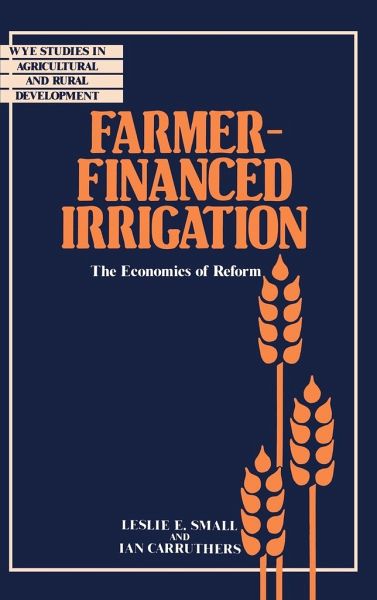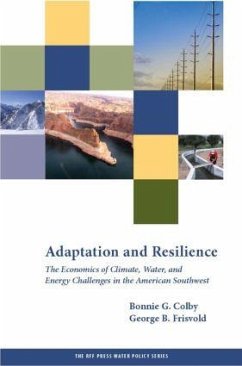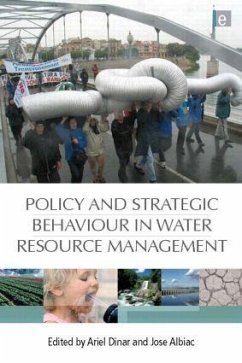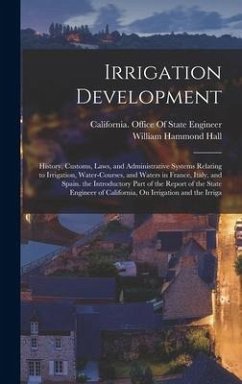
Farmer-Financed Irrigation
The Economics of Reform

PAYBACK Punkte
67 °P sammeln!
The fiscal crises that faced the governments of many countries in the developing world during the 1980s focused attention on the shortcomings of existing policies for financing irrigation, particularly with respect to the recurrent costs involved in maintaining an irrigation operation. In this atmosphere, many argued for a greater reliance on the implementation and collection of user fees, despite the fact that the institutional and policy environments prevailing in many countries would lead to user fees becoming just another undesirable tax burden on the farmer. In this book, Leslie Small and...
The fiscal crises that faced the governments of many countries in the developing world during the 1980s focused attention on the shortcomings of existing policies for financing irrigation, particularly with respect to the recurrent costs involved in maintaining an irrigation operation. In this atmosphere, many argued for a greater reliance on the implementation and collection of user fees, despite the fact that the institutional and policy environments prevailing in many countries would lead to user fees becoming just another undesirable tax burden on the farmer. In this book, Leslie Small and Ian Carruthers examine in detail the potentials and limitations of user fees for financing irrigation operation and maintenance. Both authors have extensive field experience in irrigation in developing countries and have combined this experience with simple concepts of economics to examine possible institutional and financial reforms which would not simply ask farmers to pay for an inadequate irrigation service, but would create the potential for significant improvements in the quality of the service provided. The proposed elements of any such reform are discussed in depth - a system of user fees covering the recurrent costs of irrigation; a financially autonomous irrigation agency that can retain and use the fees to operate and maintain the irrigation facilities; and a macro policy environment that is not unduly skewed against the agricultural sector. Written in a style intended to convey economic perspectives and insights to non-economists, this book will be essential reading for all those concerned with the financing and performance of irrigation in developing countries.
Table of contents:
Irrigation financing in perspective; Key economic concepts; Conceptual framework; Cost-effective O&M; Water-use efficiency; Improving investment decisions; Resource mobilisation efficiency; Equity; Establishing financial autonomy; Setting irrigation fees; Collecting irrigation fees; Political economy of irrigation financing; Conclusions and recommendations.
This book examines the potentials and limitations of user fees for financing irrigation operation and maintenance.
Table of contents:
Irrigation financing in perspective; Key economic concepts; Conceptual framework; Cost-effective O&M; Water-use efficiency; Improving investment decisions; Resource mobilisation efficiency; Equity; Establishing financial autonomy; Setting irrigation fees; Collecting irrigation fees; Political economy of irrigation financing; Conclusions and recommendations.
This book examines the potentials and limitations of user fees for financing irrigation operation and maintenance.














